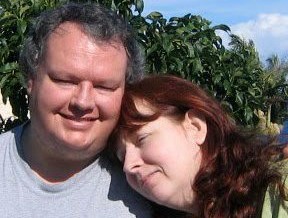I have previously written about beliefs and belief systems. The short version was something like this:
1. A belief is both a thought and a feeling, or a link between thought and feeling. It is a Thought that you Feel is true.
2. Beliefs influence our behavior. We get into a situation, we decide based on our beliefs (or other factors), and we act.
3. The consequences of our actions, in turn, serve to reinforce our beliefs or break them down. If a belief leads to a decision with good consequences, it gets strengthened. If the belief that leads to a decision with bad consequences, it will be weakened.
Now I find myself thinking more and more about the physical, emotional, mental and spiritual “aspects” or “modes”. Where do belief systems fit in to those aspects?
1. The outside world acts on us in a way that is usually physical, tangible. The physical state of being is the vehicle by which our minds and hearts interact with the world. If our physical needs are met, we can operate the physical vehicle in pursuit of our mental, emotional, and spirit needs: first we live, then we love, learn, and leave a legacy. If our physical needs are not met, we have no vehicle or means to service our mental, emotional, and spiritual needs, and they take a back seat.
2. Our reactions to our circumstances is usually emotional, first. Stimulus and perception/observation is the start of the cycle, and our most immediate, most visceral reaction is emotional. But, we are able to exercise willpower and intercept our emotional reaction from immediately affecting our behavior. Our mental capacity allows us to “visualize ahead” – and we can imagine consequences from our actions before we take those actions. We are not reducing or shutting off our emotional reactions, but we are disconnecting it from reflexive reaction and channelling it toward another action.
3. Our beliefs are not really a separate force from our mental and emotional modes, but are in harmony with them. Just like our need for affection, which is emotional but is ultimately served by the physical plane, our spiritual need, the need to be the best person we can be, similarly acts through our mental and emotional modes to find its expression.
4. Finally, our decision is made, we take an action, and we await the consequences. The seed has been sown. Our spirit, intellect, and feelings have acted upon our phyical selves, and when the consequences are realized, they will be in the physical plane as well.
With this in mind, can we map the “unique human faculties” to the physical/emotional/mental/spiritual?
1. Self-examination: self-awareness, observation. (Physical/Mental) A physical observation leads to a thought. Our minds are aware of our bodies and senses.
2. Vision: imagination, creativity, visualization. (Mental/Emotional) We can imagine each decision, each action, and each outcome. Imagination is mental, but our reactions to each possible outcome are emotional. (The idea of “creativity” is often expressed along with “emotional” too: creativity is associated with the element of water and the suit of cups).
3. Conscience: self-guidance, connection to wisdom. (Emotional/Spiritual) Our spirit calls us to be better people, and this is the driving force that leads us to make decisions that trade short-term or low-level needs for long-term fullfilment or higher-level needs. The best decision and action is the one that we can be proud of in 10 years.
4. Willpower: capacity to act out our vision. (Spiritual/Physical) The cycle starts by the physical acting on us, now the circle comes back around and we act on the physical, sow our seeds, and see if the results are good. We take an action and then get ready to observe again.
OK, I think that gets close to what I wanted.
